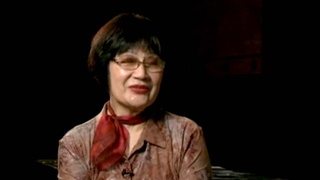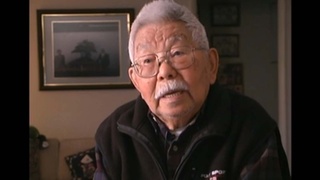Interviews
Moving to and living in Japan
I didn’t come here with an intention to find my roots or anything like that. I think that goes back to the thing I was saying about Japanese Americans being taught not to be Japanese. Actually, when I was in Los Angeles, through the other Japanese Americans around me, my cousin and his friends, they were actually very anti-Japanese, anti-national-Japanese. Japanese nationals were not cool. They were the geeks with the cameras that always ran around Disneyland in groups. We would run away from them and scream and make fun of them. I think I’ve learned better now. Yeah.
When I came here it was because my uncle… I had been doing some translation—not translation, but editing of speeches for a professor over at UCLA, a visiting professor. He’s a member of (?) Escow, so I was editing his speeches and his papers to help him out—correcting some of the English and stuff. I had gotten to the point—I’m a designer. I do art direction and creative direction. And as you know Los Angeles can be a great place, and it can also be a very tiring place. I had been there for 7 years and kind of had it up to here with the industry.
I was 28 at the time, and I really wanted to travel. I had traveled when I was younger, you know after high school and stuff like that. But I wanted to, like, really travel—go spend some time any place. I didn’t look at Japan as my final destination at that time. I looked at it as a jumping off point—“Okay, here’s the opportunity for me to go and check out another country.” Japan, as I found out later, is fairly central in the world. You can get just about anywhere for about the same amount of money and the same amount of time. It was for those reasons more than anything else that I came.
Date: September 12, 2003
Location: Tokyo, Japan
Interviewer: Art Nomura
Contributed by: Art Nomura, Finding Home.
Explore More Videos

Strict school policy of separating boys and girls in Japan
(b.1920) Japanese Canadian Nisei. Established the Ikenobo Ikebana Society of Toronto

Coming to America
(b.1943) Shin-issei grand master of taiko; founded San Francisco Taiko Dojo in 1968.

Growing up in a Japanese American family
(b. 1967) Hawai`i-born professional fighter in Japan

The reason for coming to Japan
(b. 1967) Hawai`i-born professional fighter in Japan

Disadvantages of looking Japanese
(b. 1967) Hawai`i-born professional fighter in Japan

Treatment of Japanese Paraguayans during World War II (Spanish)
Nisei Paraguayan, Researcher

Yobiyose system in Canada
(b. 1922) Canadian Nisei who was unable to return to Canada from Japan until 1952

Reason to come back to Canada in 1954
(b. 1922) Canadian Nisei who was unable to return to Canada from Japan until 1952

Impressions from interviews with Issei women (Japanese)
Tsuda College President, researcher of Nikkei history

The Japanese society reacts to Nikkei living in Japan (Japanese)
Tsuda College President, researcher of Nikkei history

Easier to be a foreigner in Japan (Spanish)
(b. 1969) Former president of Centro Nikkei Argentino.

Investigating labor movements in Japan
(1923-2011) Lawyer, MIS veteran, founder of Francis and Sarah Sogi Foundation

Feeling closer to Japan as a Japanese American
(1923-2011) Lawyer, MIS veteran, founder of Francis and Sarah Sogi Foundation

The various realities of Nikkei in Latin America (Spanish)
(b. 1950) Nisei Chilean, Businessman

Avoiding the Japanese military
(1914-2004) Nisei Bonsai master in the United States
